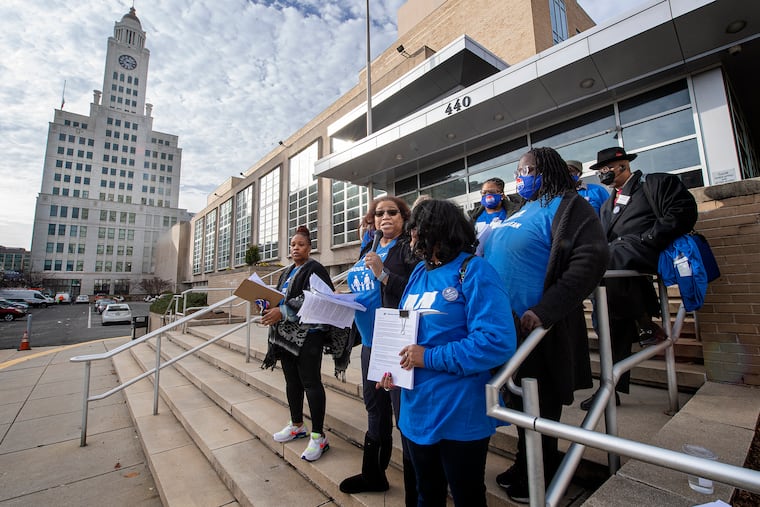New Philly School District admissions policy holds charter parents hostage, some say
“This is completely inadequate — all families deserve choice,” Mastery Harrity parent Kristina Wilkerson said.

For as long as anyone can remember, Philadelphia public school parents have had the chance to send their children to any neighborhood school in the city they wanted to, as long as the school had enough seats.
When the Philadelphia School District instituted changes to its admissions policy for criteria-based schools like Masterman and Central, it quietly revamped policies for district schools run by charters, too, saying the so-called Renaissance charters can’t take students living outside the neighborhood boundaries drawn by the school system.
That could have big implications for schools like Mastery Gratz High School in North Philadelphia, which enrolls 1,100 students — 500 of whom live outside the Gratz catchment.
Hundreds of Mastery parents have been lobbying the district to reconsider this policy, and about a dozen did so in person Thursday, rallying in front of school system headquarters and then hand-delivering 520 letters to a representative from the charter office.
“This is completely inadequate — all families deserve choice,” said Kristina Wilkerson, a parent from Mastery Hannity, a school in the Cobbs Creek neighborhood. “Seems like an attack to destroy a great school.”
A district spokesperson declined to comment.
Charter companies receive payments from the district for each student they enroll. Separately, Mastery parents want the district and school board to reconsider provisions in nine unsigned Mastery schools’ charters that would allow the school system to unilaterally change the academic standards by which schools are judged at any time during their five-year charter.
“We are not afraid of high standards, but who would sign a contract like that?” said Wilkerson.
If Mastery does not sign the charters, it won’t get $50 million in federal COVID-19 relief money that it wants to use to upgrade HVAC systems in its schools, which operate in district-owned buildings.
“Now our children are being denied this once-in-a-lifetime chance for clean and fresh air in every classroom,” said Wilkerson.
Markida Ross sends her son to Mastery Gratz, despite living in the Northeast She graduated from Gratz back when it was run by the district as a neighborhood high school, but acknowledged that for a long time, “honestly, it was a school many families had come to avoid.”
Over many years, the district turned over some of its lowest-performing schools, like Gratz, to charter companies. Though the school system has not converted any district schools into charters for several years, it still has 21 Renaissance charters. (Research on the effectiveness of the Renaissance charter program is mixed, though academic outcomes at those schools have generally not improved dramatically in the way they were intended to.)
Ross and others say Mastery’s impact has been profound, turning Gratz into a vibrant school that surrounds students with supports and prepares them well for their futures.
“Every family deserves the opportunity to send their children to a school like Gratz,” said Ross. “This [proposed policy change] defines inequity — denying hundreds of children, mostly Black and brown, the chance at a quality education.”
Even if the changes go forward, students who currently attend Renaissance charters but live outside the catchment would be permitted to remain at those schools through graduation, said Ceci Schickel, Mastery’s senior director of organizing and Advocacy.
“But this just flies in the face of everything the school board says it wants in terms of equity,” said Schickel.